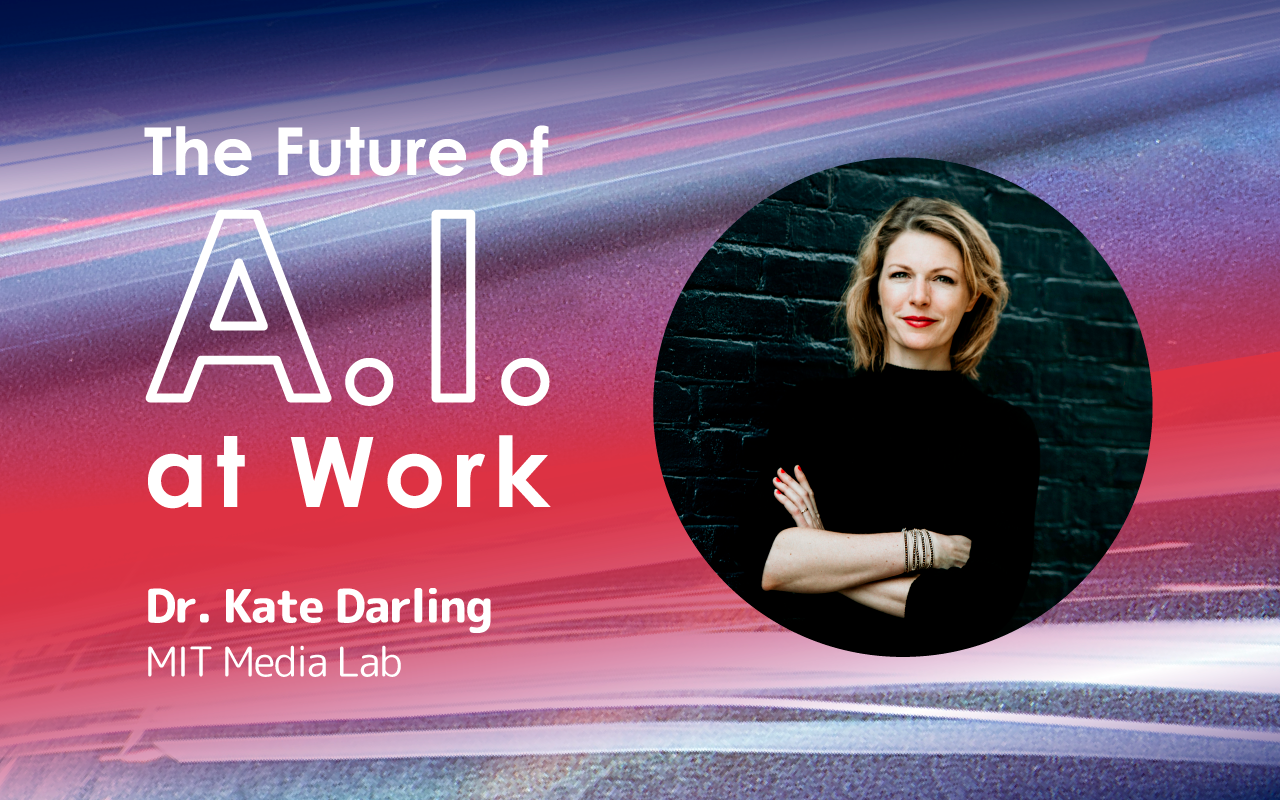Japanese AI company looks to utilize technology to transform corporate culture, enrich work-life balance
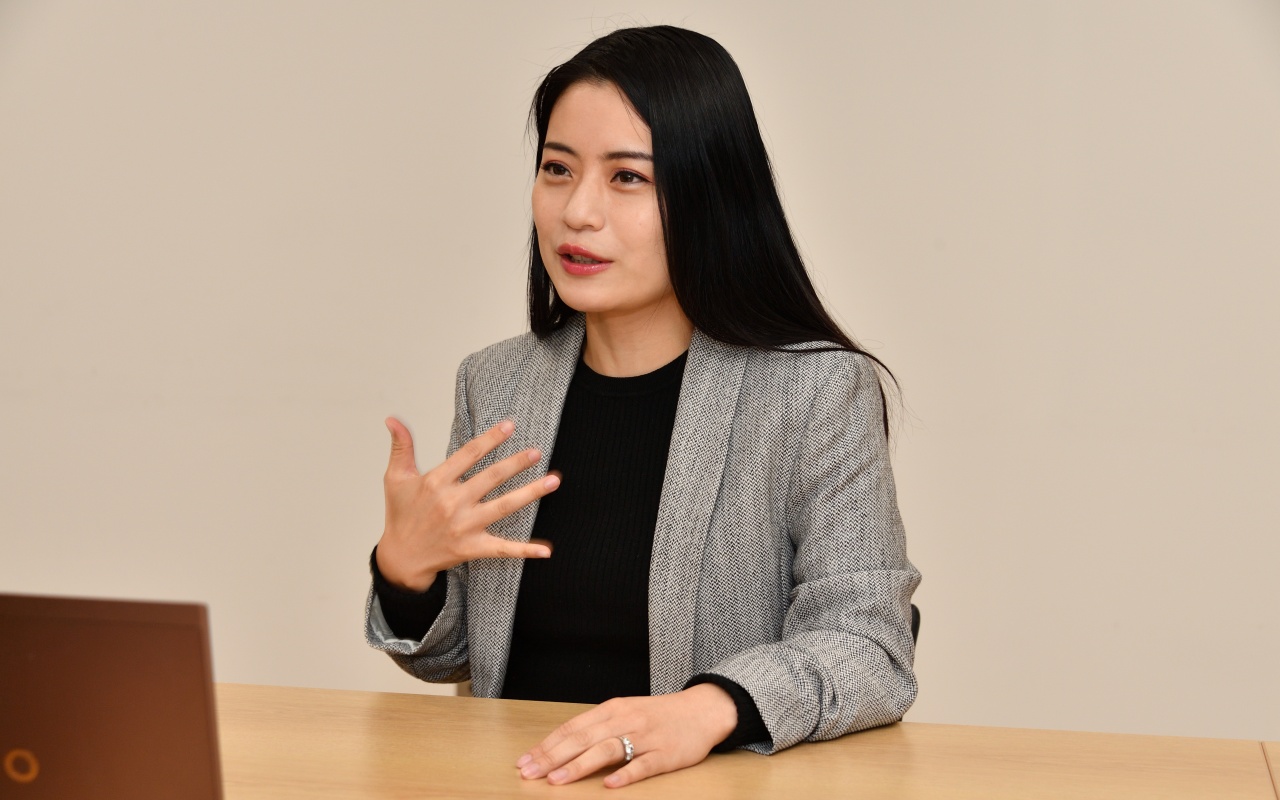
Miku Hirano, founder and CEO of Cinnamon Inc., a firm that develops AI solutions for businesses, speaks during a recent interview at the company's head office in Tokyo. YOSHIAKI MIURA
This is the fifth article in our series "Diversity and the future of the Japanese workplace." Together with The Japan Times, we examine the changing workplace environment and what the future of work may look like as companies embrace diversity, internationalize their human resources and adapt to new working conditions.
A vision of more creative, fulfilling work
Advances in artificial intelligence (AI) technologies have been known to make people nervous. People are already losing jobs to automation, and there is an underlying anxiety that technological advances will further destabilize the labor market. The notion that AI will one day usurp its creators and render humanity obsolete has long occupied real estate in our imaginations.
Miku Hirano, however, envisions a different future. The founder and CEO of Cinnamon Inc.—a company developing practical AI solutions for businesses—believes AI technology has the potential to transform the way we work: liberating us from mundane tasks and streamlining processes that, up until now, have eaten up a significant portion of our working hours.
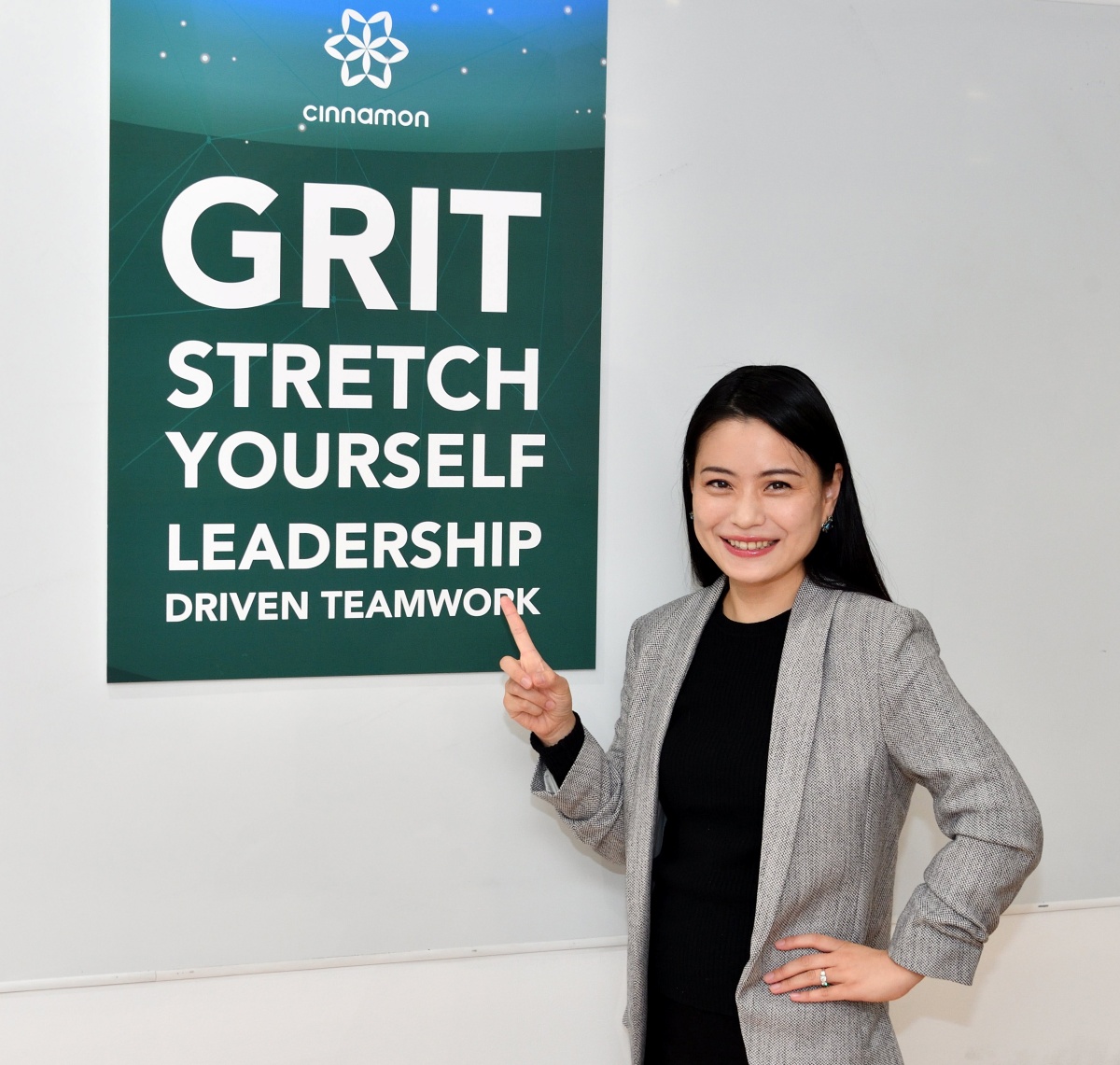
Miku Hirano, CEO of Cinnamon Inc., points to the company's guiding principles at the company's headquarters in Tokyo. YOSHIAKI MIURA
Indeed, it was Hirano's observations of Japan's work culture that inspired her to launch Cinnamon. As she started her own family, she thought about the future her children would inherit, and felt that Japan's work culture, which is often characterized by its long work hours, needed to change.
"When my children were born, I started thinking about future generations, and I realized we have a long way to go toward attaining ideal work styles," she said. "There are people going through really negative experiences, such as mental breakdowns and karoshi (death from overwork). Even those who aren't in such extreme circumstances may feel uncomfortable leaving the office before their supervisors, and are thus forced into very inefficient work styles. I think there are a lot of aspects of contemporary work life that make people unhappy, even if they don't realize it, and I started this company to use AI to improve this situation."
This belief is reflected in Cinnamon's products, such as Flax Scanner, which can extract information from invoices, regardless of their layout, and convert it into data, eliminating the need for manual data entry. Hirano hopes these technologies will help bring about a society where four-hour workdays are the norm and where people lead fulfilling, balanced lives.
Hirano says contemporary work culture operates according to an entrenched assumption related to the relationship between people and technology. "Our work styles haven't really changed since the industrial revolution," she observed. "Up until now, we've focused on how people should adapt to machines and technology. We should be focusing on how technology can adapt to us instead." It's through new AI technologies that Hirano hopes to change this fundamental characteristic of the human-technology dynamic.
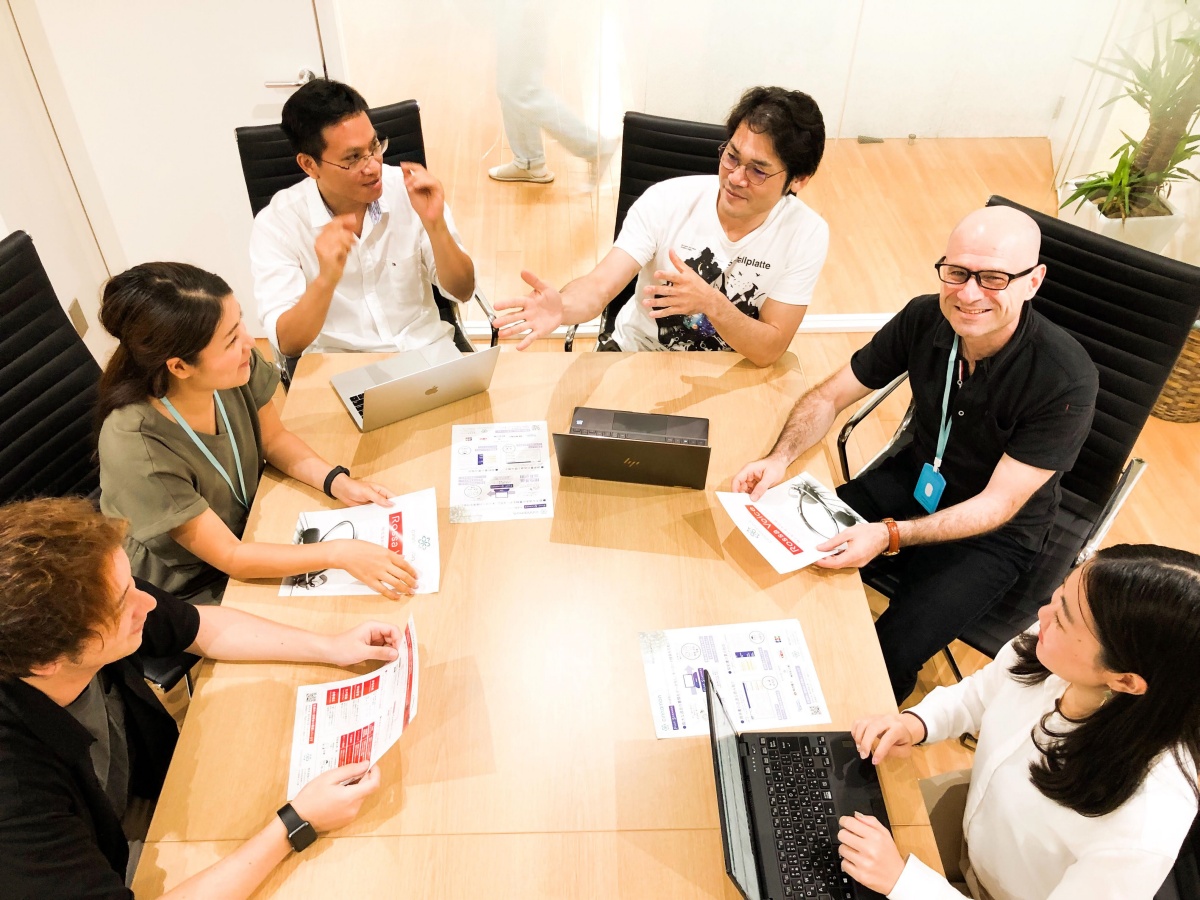
Cinnamon Inc. staff hold a discussion with Vice President Yoshiaki Ieda (third from right). CINNAMON INC.
As society responds to the coronavirus pandemic, public and private sectors around the world are pouring investment into digital transformation: the adoption of digital technology to transform services and businesses. Hirano believes the next couple of years will be incredibly important for AI technologies. In addition to enabling new forms of innovation, the implementation of AI during this period will have the potential to allow people to engage in more creative, fulfilling work.
AI in anime to save time
AI is evolving, and Hirano believes there will be a turning point for the technology when users no longer perceive it simply as a utility to improve efficiency, but rather as an indispensable asset for growth. She points to the anime industry as an example of how effective implementation of the technology can significantly alter a market's trajectory.
To reduce costs, the anime industry outsources many of its more time-consuming procedures to Chinese studios. Hirano is confident that AI technology can be used to automate these procedures, allowing studios to free up resources and direct them toward more creative endeavors.
"The anime industry can be grueling, as a typical 20-minute anime episode requires around 5,000 drawings," Hirano explained. "We worked with an anime production company in the past to create AI software that automatically colors drawings. The software not only reduces the number of people needed to complete the task, but also greatly reduces the amount of time required. By employing this technology strategically, anime studios can recapture what has been lost to China."
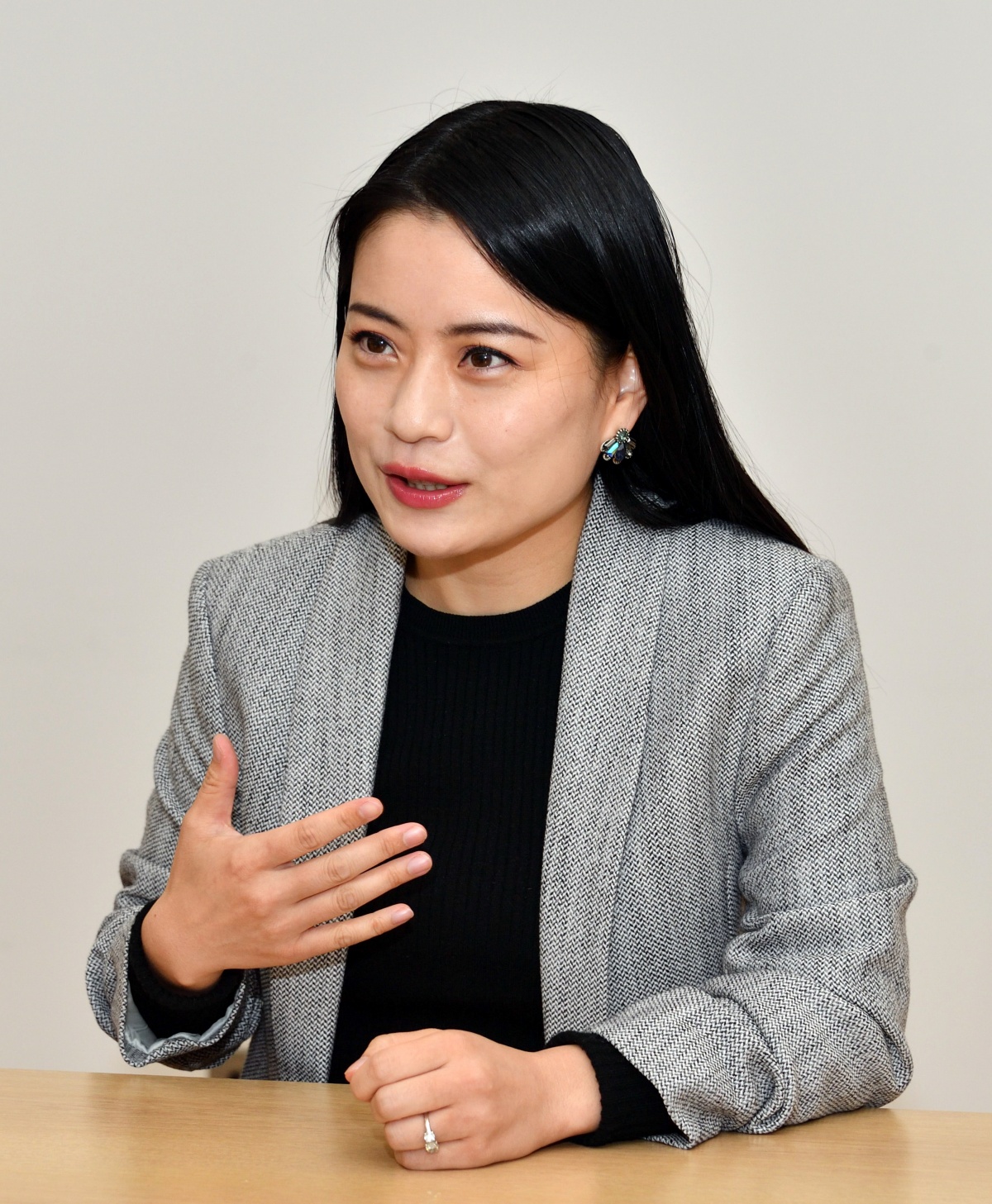
Miku Hirano talks about how AI technology will be an indispensable asset for growth for many industries. YOSHIAKI MIURA
Hirano intends to send similar shock waves through other industries, including the manufacturing, agricultural and medical sectors. She says these changes will center on making knowledge management more practical within organizations.
For example, in the manufacturing sector, Hirano points out that manufacturers, regardless of their industry, face the same kinds of issues. Currently, when a team encounters a problem and conducts troubleshooting procedures, someone will write a report to detail what went wrong and how they resolved the problem. However, if another team encounters the same issue down the line, they will unlikely be aware of this report unless someone informs them or they look through the records themselves. Hirano hopes to provide an AI solution that will automatically detect issues and make recommendations based on past solutions.
Working with AI researchers in Vietnam
To recruit talented AI researchers and personnel, Hirano set her sights on Vietnam. Currently, there are around 150 Vietnamese staff at Cinnamon's development sites in Ho Chi Minh City and Hanoi. When Hirano lived in Vietnam from 2012 to 2013, Vietnamese people's ability to adapt to impromptu situations left a strong impression on her. A particularly striking example was how they drive.
"In Vietnam, there are areas with tons of motorbikes and no traffic lights," she said. "If you watch how people drive, you'll see them move ahead until they come across an obstacle, which they'll respond to by driving around it, and repeat this process until they arrive at their destination."
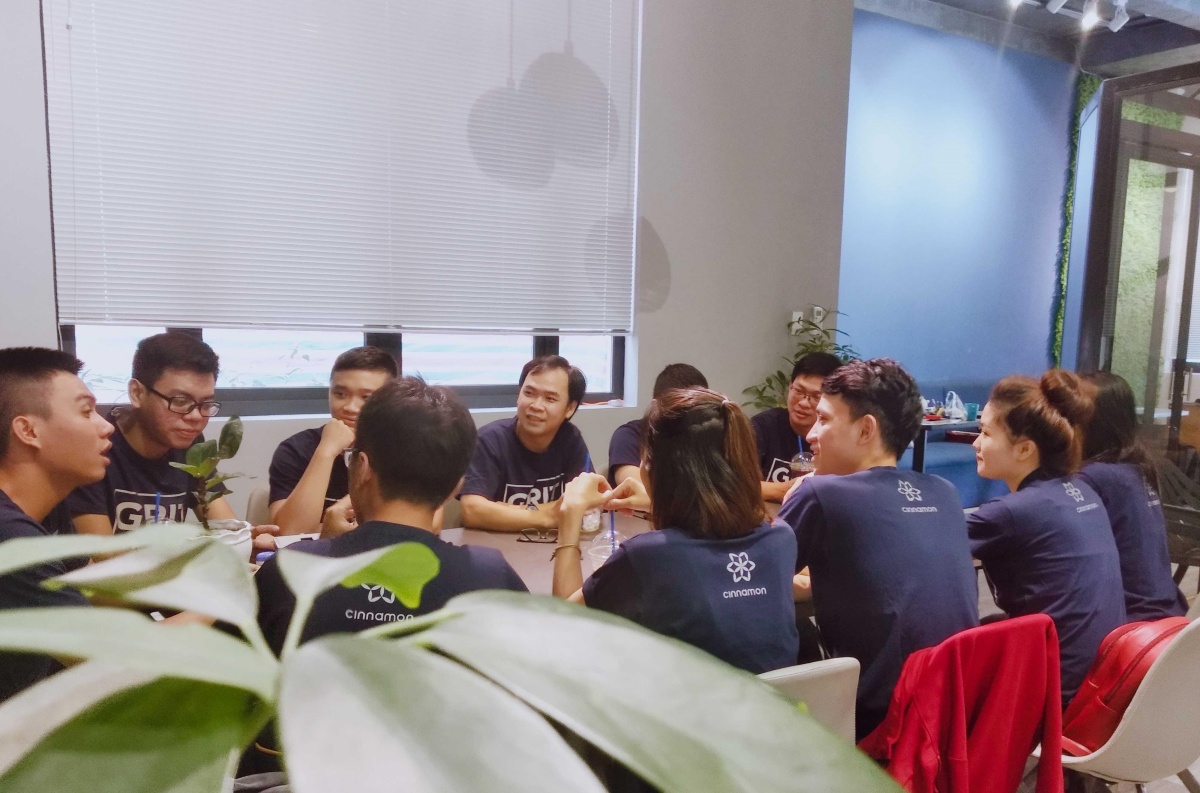
Vietnamese AI engineers hold a meeting at Cinnamon Inc.'s AI development site in Ho Chi Minh City. Currently, the company has 150 staff in Hanoi and Ho Chi Minh. CINNAMON INC.
Hirano says the Vietnamese's knack for responding spontaneously provides a good balance to the Japanese tendency to rely on plans. "Japanese love making plans. We love to pour a lot of time into making plans before taking action. In contrast, the Vietnamese don't really like formulating plans. All they really need is a general direction to start moving."
These cultural differences inevitably lead to communication issues, and because Japan and Vietnam are both high-context cultures in which people communicate based on inherent cultural understandings, Hirano and her teams have adjusted their communication styles. "Initially, the Japanese way of communication worked somewhat," she noted, "but then, there was an instance when I just couldn't get my point across. So, I started being more direct. Instead of saying, 'I'm not sure about this interface' I now just say, 'This interface is bad!'"
Diverse perspectives lead to success
Hirano's experience forming teams in Vietnam and Japan has taught her the importance of hiring people with diverse perspectives. She recognizes her personality type is one that wants to act quickly, and acknowledges the need to have other personality types, such as those that view issues from the standpoint of users."From a management perspective, things might get tricky if the company only has aggressive personalities such as myself," she said. "Having various personality types in a team provides balance and is better for business."
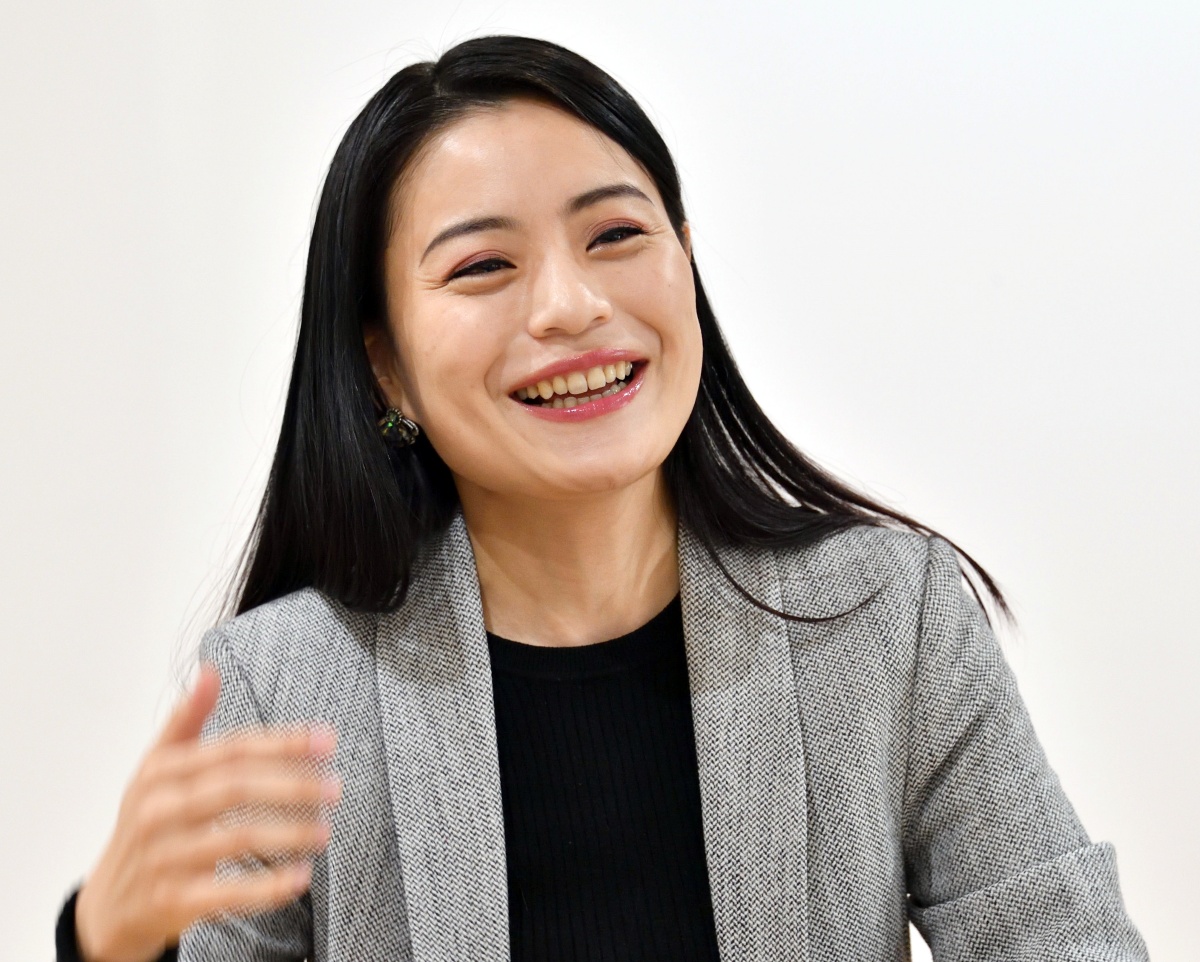
Miku Hirano says a diverse workforce is the natural result of her search for talented and efficient team members. YOSHIAKI MIURA
For an AI company, Cinnamon has a high percentage of female staff, many of whom are in leadership positions. Although she doesn't place that much weight on diversity when hiring, she noticed that a diverse workforce has been the natural result of her search for talented and efficient team members. She commented that, while Cinnamon doesn't currently have the resources to focus on diversity, she will be seeking to learn more about how diversity can enhance her company's endeavors.
As AI continues to transform the way people work, a wide range of perspectives will be important for identifying areas where AI can improve efficiency. Founded in 2016, Cinnamon's journey has just begun, but Hirano's vision of a society where AI frees us from the mundane and enables us to lead diverse workstyles is one to which we should all aspire.
Article by Joe Muntal. Edited by Alex Steullet, Ade Lee, Mina Samejima, and The Japan Times. Photographs courtesy of Yoshiaki Miura and Cinnamon Inc.
Writer
Editor

Alex Steullet
Alex is the editor in chief of Kintopia and part of the corporate branding department at Cybozu. He holds an LLM in Human Rights Law from the University of Nottingham and previously worked for the Swiss government.
